Letter recognition Easy Worksheets for 4-Year-Olds
14 filtered results
-
From - To
Discover a delightful variety of letter recognition worksheets designed specifically for 4-year-olds! Our easy, printable worksheets offer engaging activities that make learning the alphabet fun and effective. Tailored to capture young learners’ attention, these worksheets feature colorful illustrations and interactive exercises to help children identify letters and develop vital literacy skills. Perfect for parents and educators, our resources promote hands-on learning while fostering creativity. Encourage your little ones to enhance their letter recognition abilities with our enjoyable, age-appropriate materials. Start their journey to reading success today with our easy worksheets, ideal for home or classroom use!
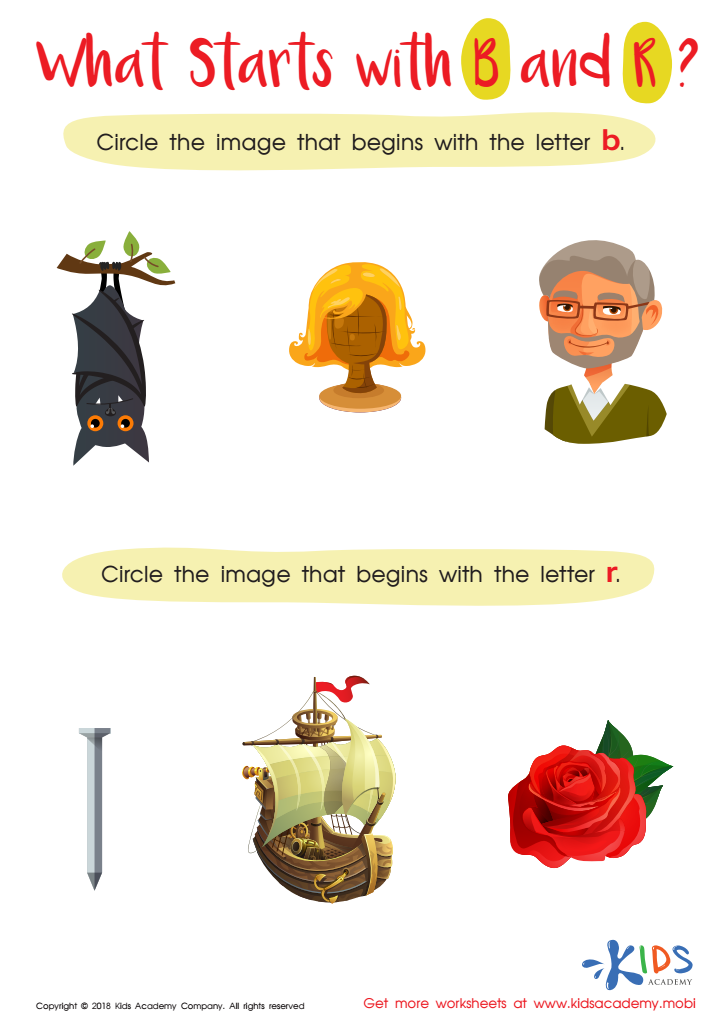

What Starts with B and R? Worksheet
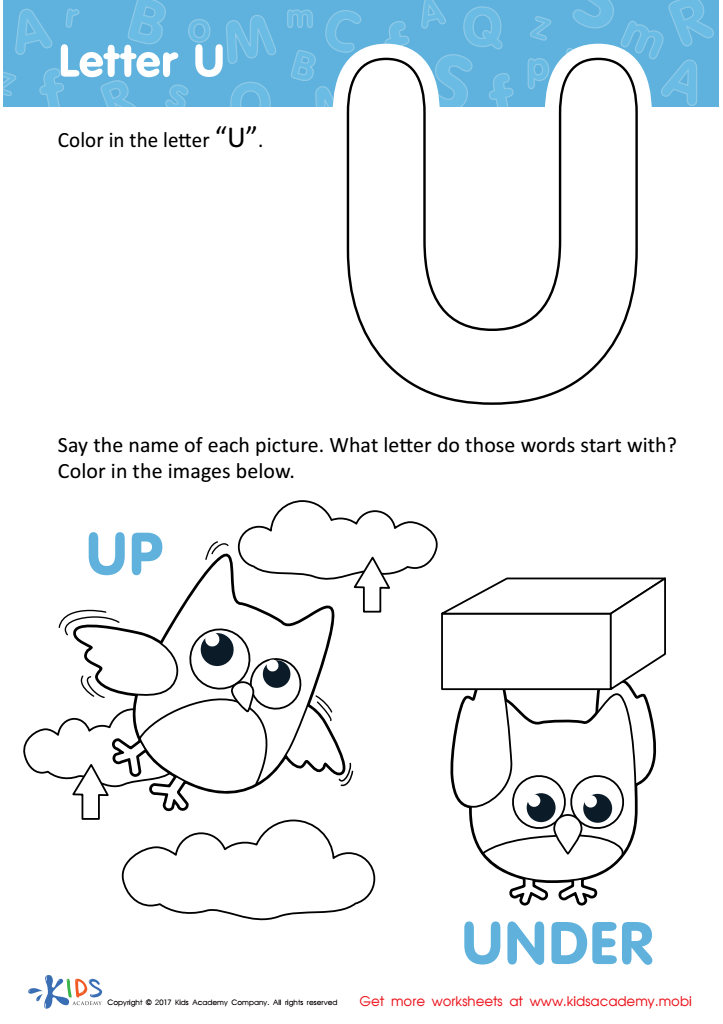

Letter U Coloring Sheet
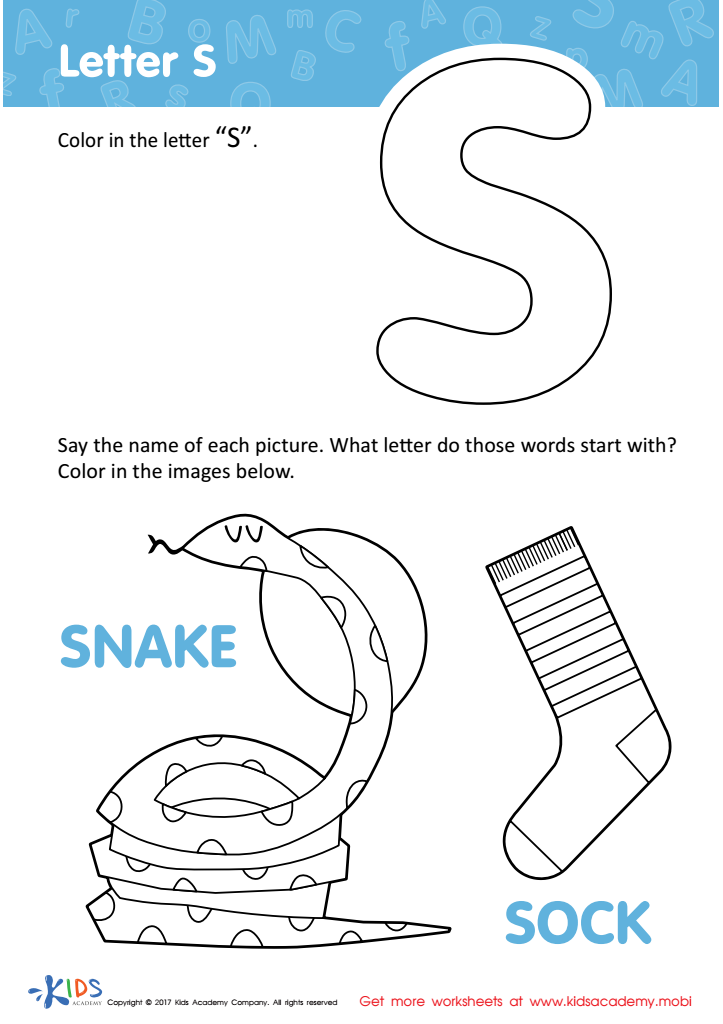

Letter S Coloring Sheet
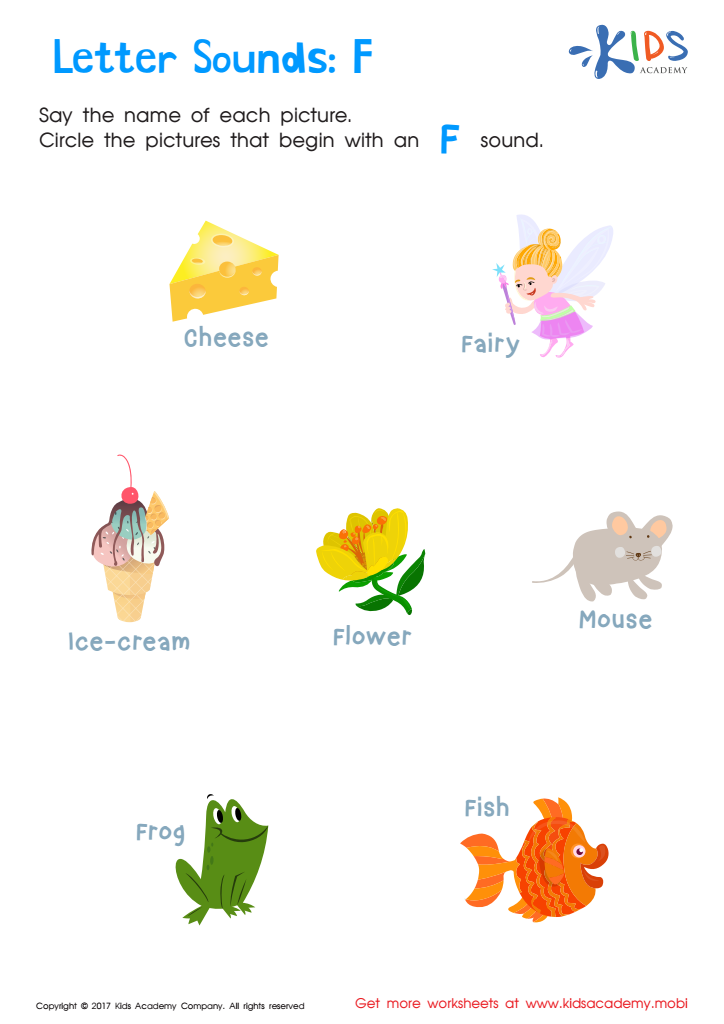

Letter F Sounds Worksheet
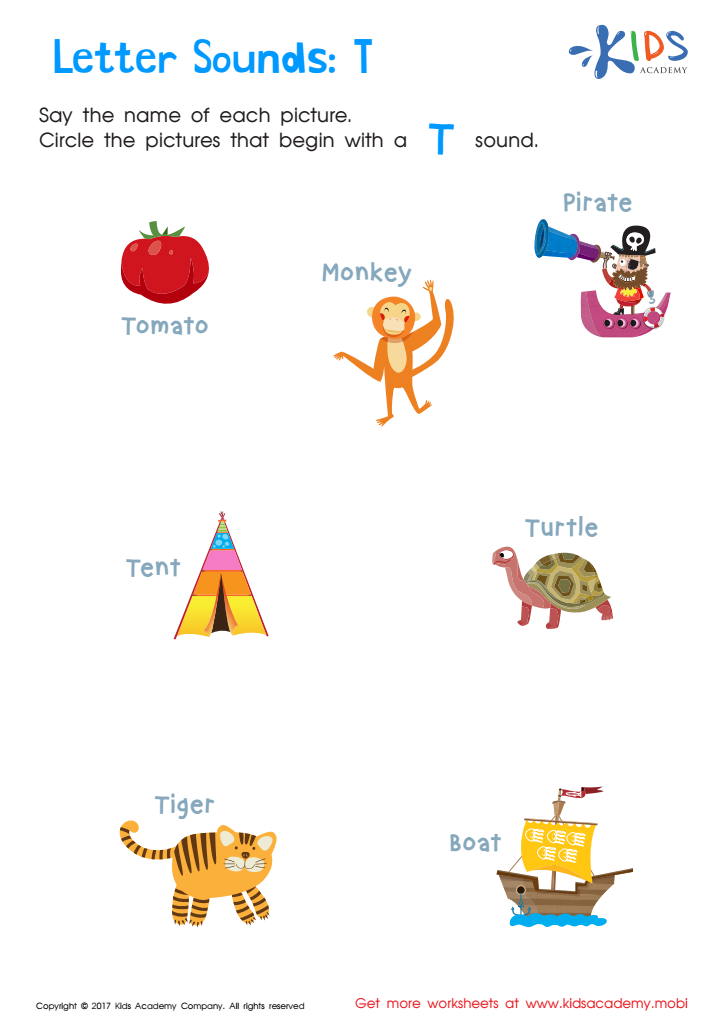

Letter T Sounds Worksheet
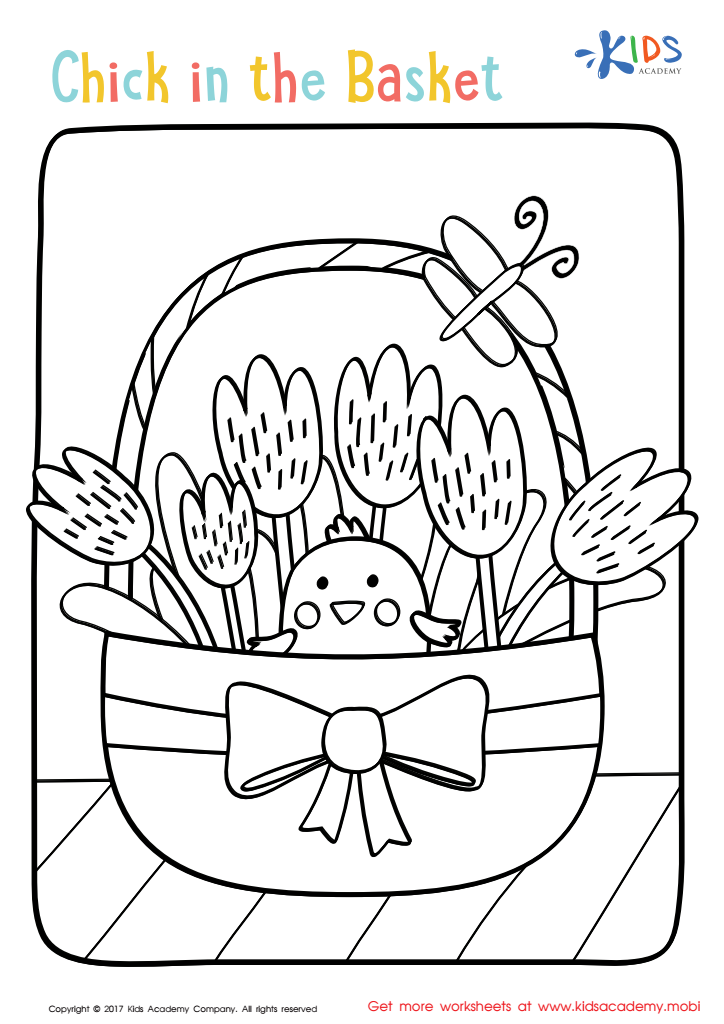

Easter: Chick in the Basket Worksheet
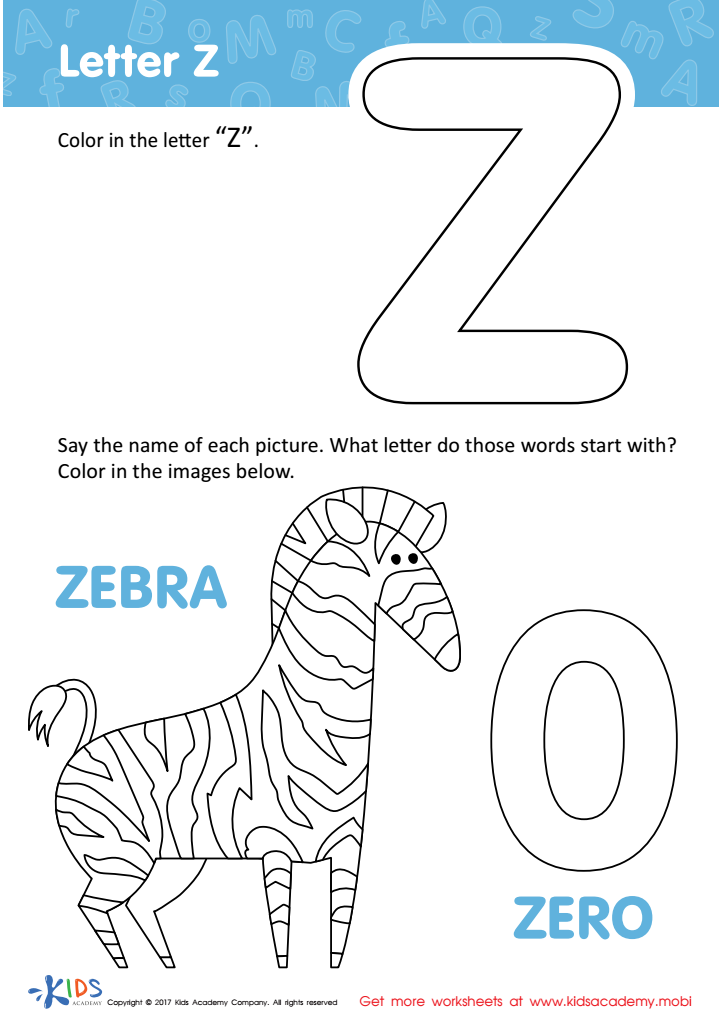

Letter Z Coloring Sheet
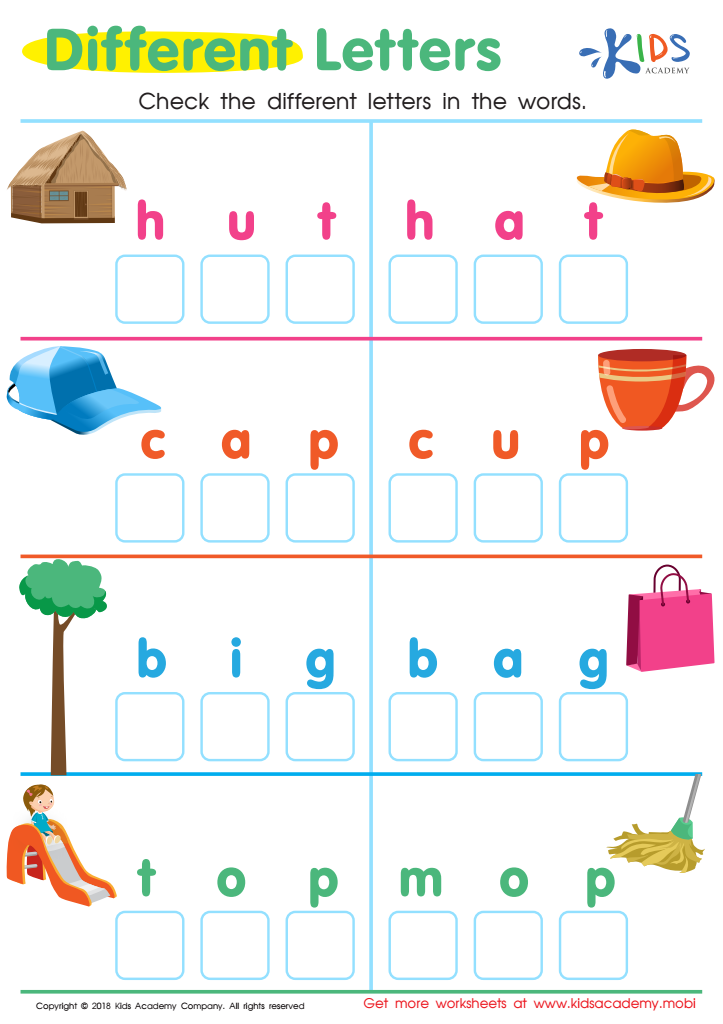

Different Letters Reading Worksheet
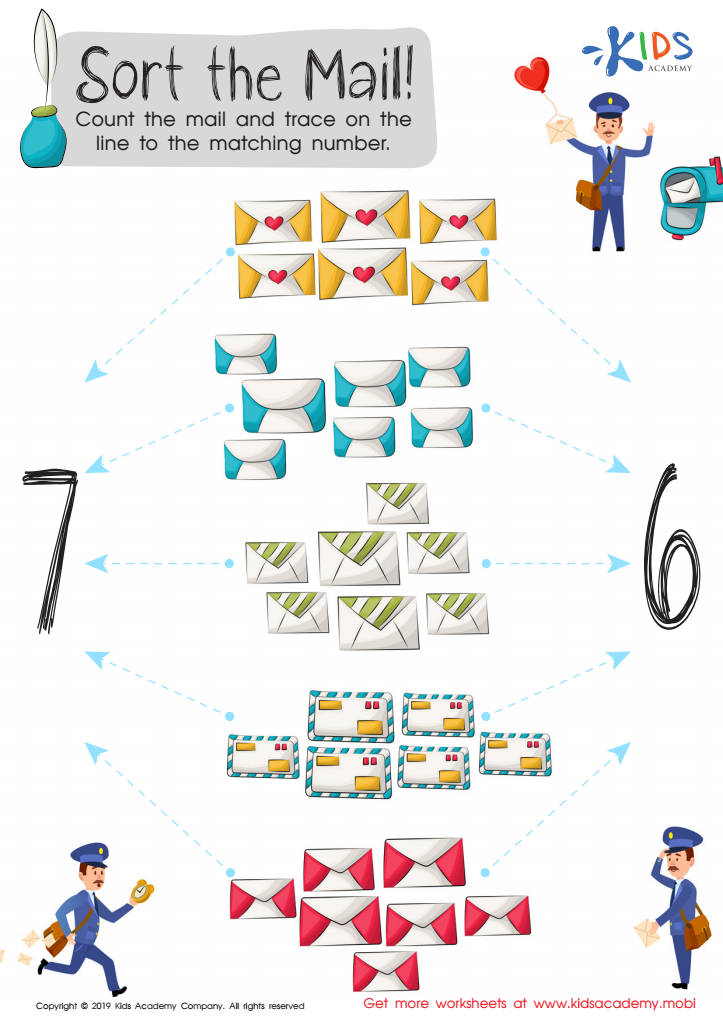

Sort the Mail Worksheet
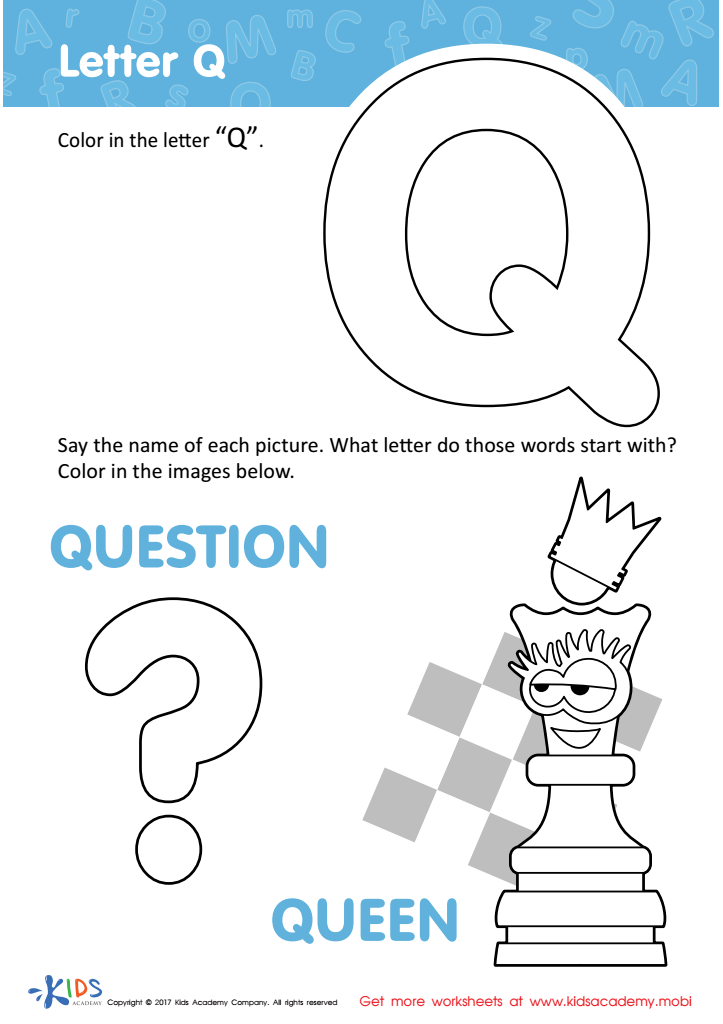

Letter Q Coloring Sheet
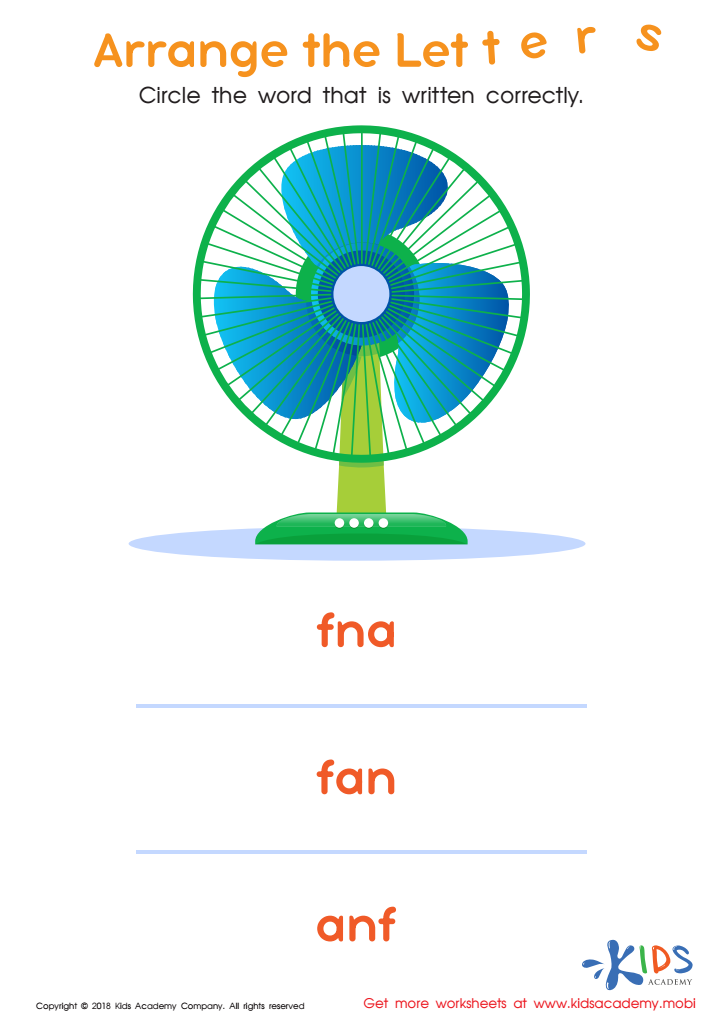

Arrange the Letters Worksheet
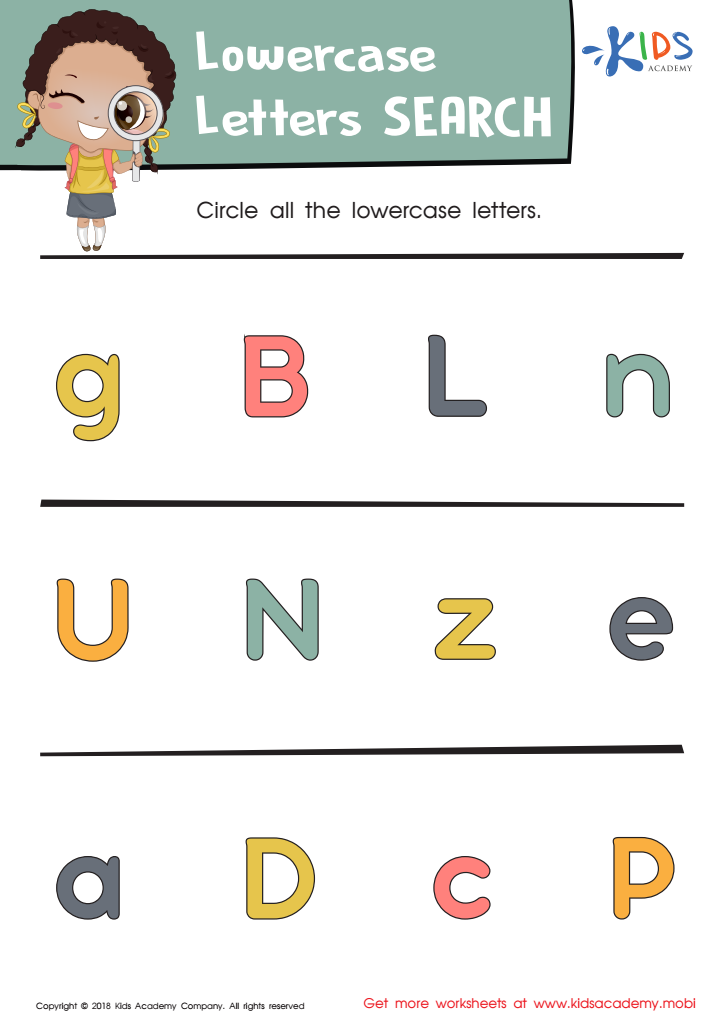

Lowercase Letters Search: Assessment Worksheet
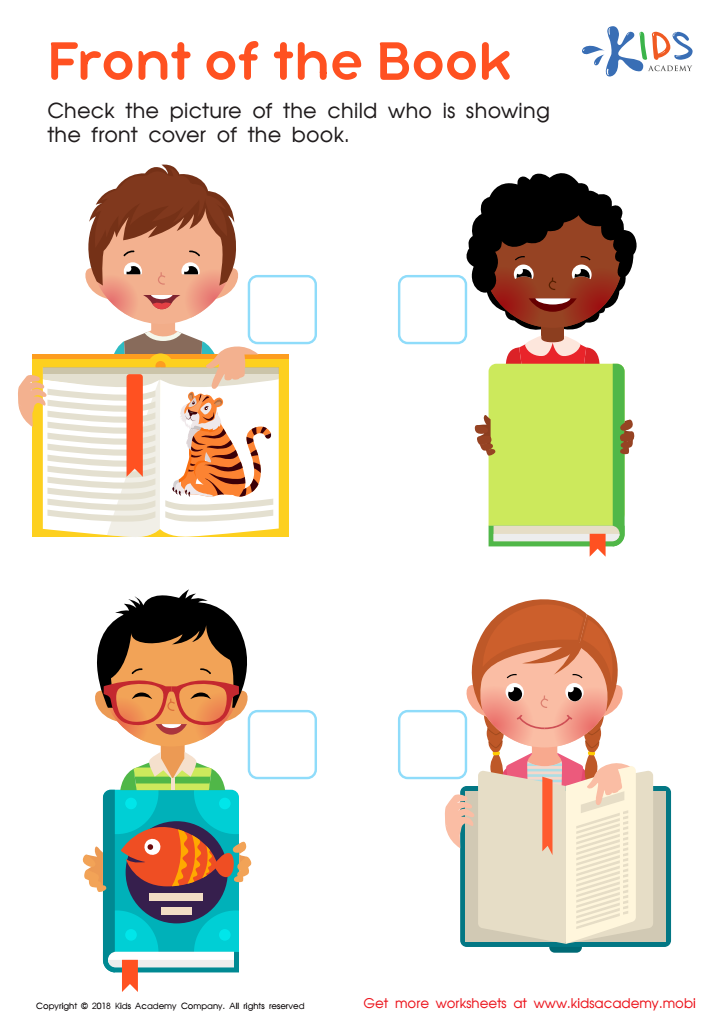

Front of the Book Worksheet
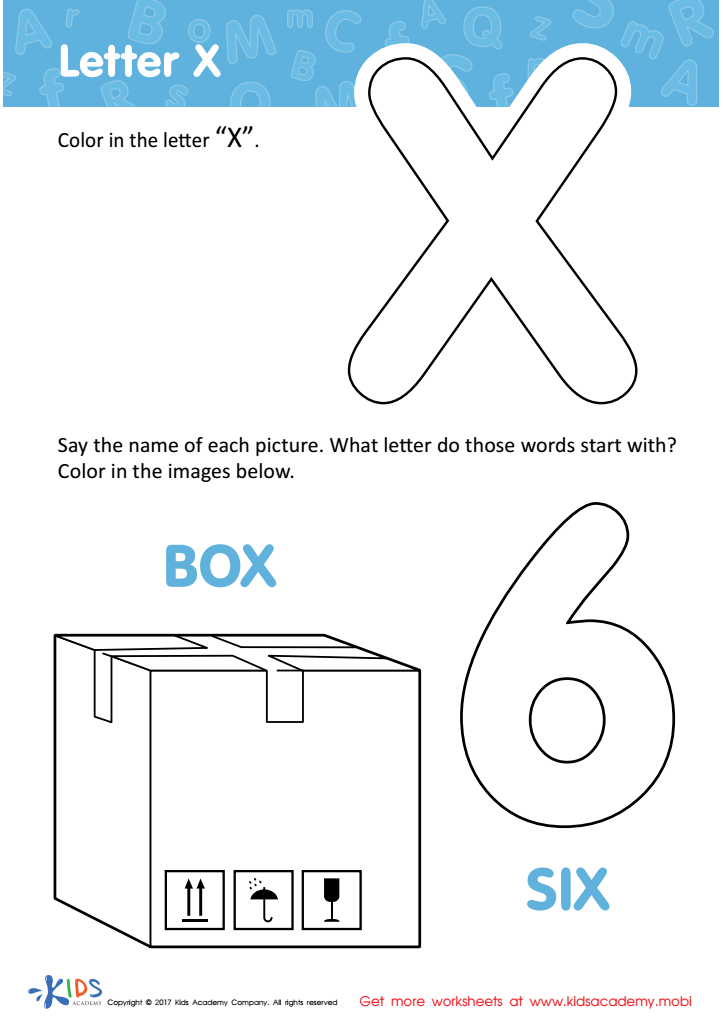

Letter X Coloring Sheet
Parents and teachers should prioritize letter recognition for 4-year-olds because it is a foundational skill vital for early literacy development. Recognizing letters is the first step in helping children learn to read and write. When children can identify letters, they begin to connect sounds to letters, paving the way for phonetic understanding, which is crucial for decoding words later on.
Moreover, early letter recognition promotes language development and vocabulary expansion. When children become familiar with letters, they engage more with books and printed materials, stimulating curiosity and encouragement to explore language. This early exposure sparks interest in reading, leading to a lifetime of learning.
Additionally, letter recognition supports cognitive growth. Children learn through playful activities like matching letters, singing the alphabet, and playing games, which enhances their memory and helps improve concentration skills. These activities also strengthen fine motor skills as children practice writing letters.
By fostering letter recognition, parents and teachers set children on a path to academic success. This skill is not merely about learning the alphabet but also about building confidence in communication and literacy—crucial tools for their future learning journey. Early intervention in these foundational skills can positively impact a child's educational trajectory and lifelong love of learning.
 Assign to My Students
Assign to My Students




.jpg)










